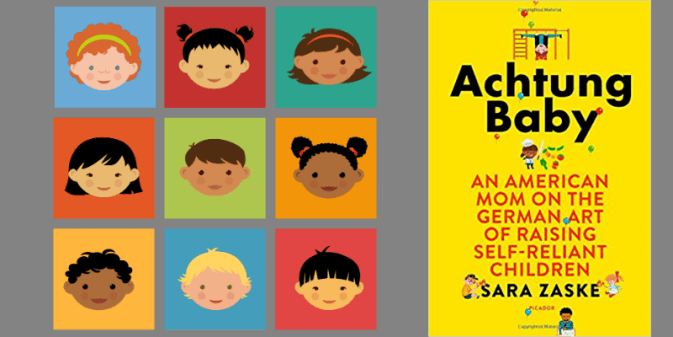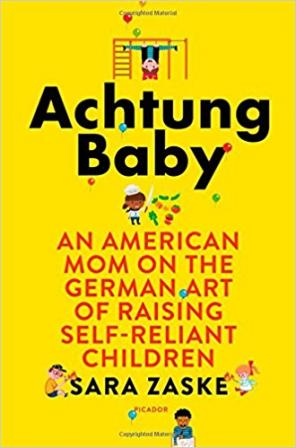
Although I struggled with infertility for five years, I was blessed to experience motherhood in two very special ways—adoption and pregnancy/birth. Both journeys are incredibly different but at the same time yield the coveted result—having a child. I wouldn’t trade my journey to motherhood for anything in the whole world because I believe it helped cultivate the type of parent I’ve become today.
Because I didn’t become a mom until I was nearly 30 years old, I had an advantage of focusing on my career, my spouse, and my own needs for longer than many of my friends who had their kids in their early and mid-twenties. I didn’t realize it back then, but my challenge with infertility was actually a sacred time for me. It afforded me the time to soak in parenting practices from my closest friends and work colleagues because I was on the outside looking in, and was able to observe many different parenting styles as I waited (not always so patiently) to become a mom myself.
Even now that I’ve been a mother for over twenty years, I haven’t met anyone that parents exactly as I do, but I’ve met so many amazing families that are raising great kids, despite their different child-rearing beliefs. I’ve always been of the mindset that we can all learn from one another, especially if it’s going to benefit our children.
In addition to interacting with parents and families here in my community, at school, and at church, I love reading almost anything parenting-related, not just because of the entertainment factor but because of the savvy information I can glean from a good read. I recently had the pleasure of reading one such book, Achtung Baby, written by Sara Zaske. This was such a delightful expression of the author’s experience of being an American mom who moves to Germany with her young family and has her eyes opened wide to the immense difference in the German cultural ways of raising their kids. “Whenever I tell my American friends and family about how much freedom German parents give their children, they react with surprise and disbelief,” exclaims Zaske.
This is where the author had my complete attention. She said she had always thought of herself as a relaxed parent until she lived in Berlin. (That’s me, I thought!) Yet being there gave her a quick taste of how much she had absorbed a modern American parenting style. She explains that a majority of adults born in the United States before 1980 grew up with much more freedom than our kids today. For example, kids in that generation (the time period I grew up in!) were allowed to ride their bikes all over town from morning until dark without having to continually check in with their parents. (I remember this well!)
Zaske elaborates that today’s parents, however, have created a culture of control. Think of the now-popular phrase “helicopter parenting,” where parents are overseeing nearly every move their offspring make from dawn to dusk. But this only touches on a larger problem—not allowing our kids to enjoy simple freedoms like having more unstructured play, to take risks, to have simple alone time after school and on weekends. It was interesting to learn that the German culture encourages toy-free time (love it!) where for weeks or months, many preschools and kindergartens throughout Germany remove toys from their classrooms so that kids must rely on entertaining themselves with their very own imaginations. Bottom line, Zaske’s children thrived under this less-controlling lifestyle and became far more secure and self-reliant, as do most German children.
Reading Achtung Baby was a great reminder about all that we can learn by embracing other cultures. Here are four parenting styles from around the world that American families can enjoy and learn from.
Parenting in Japan: Much like Germany, children in Japan have much more freedom coming and going than our American kids do and they’re expected to exercise their independence at a very young age. This includes elementary school-aged kids who are allowed to travel alone to get back and forth to school via trains and buses. One reason their children are given much looser reigns in this capacity is Japan’s overall low crime rate. In researching the parenting style of Japan, I learned that the elders in the community happily volunteer to make sure the children get safely to school, for the sheer enjoyment of interacting with them, as well as coach them on a proper greeting. The Japanese believe in a loud, strong greeting to one another, particularly when addressing their elders, otherwise it may be considered rude behavior.
Japanese families also believe in a very healthy diet where rice truly is a staple, and is even sent in their children’s lunchboxes to school each day. Community gatherings are very important as well, but when families get together the women and children hang together and prepare the food and the men congregate in another part of the house and enjoy adult beverages.
What Can We Learn From Japanese Parents? Japanese parents learn how to enjoy a more carefree pace of life and not worry as much about their children. They are strict when it comes to teaching respect and embracing education, but they know how to stop and smell the roses throughout the entire process.
Parenting in Italy: If you love a great gravy and meatballs, fine Italian wine, and amazing architecture and lush landscapes, Italian parenting may well be for you. As a whole, Italian folks focus on pleasure as opposed to work. They live their daily life by enjoying all that life has to offer rather than concentrating on a 9–5 lifestyle. In addition, the Italian way is to raise children to adapt to the adult way of life, not making it a child-centric world. They are known to appreciate all the beautiful aspects of life and live in a very relaxed manner with strong family values. This, of course, includes enjoying strong family bonds, a love of good food (and wine!) and appreciating fine art. That said, Italian children are brought up with the knowledge that they are treasured and valued and that their happiness is equally important to that of the adults in their lives.
Food is also a very important way of life in the Italian culture as a whole. Mealtime is family time and eating together is extremely important. Italian families don’t sacrifice connecting with one another in order to shuttle kids to a late night practice. And speaking of meals, in Italy wine is served with every meal and children are allowed to taste it starting at a young age. Kids can legally drink in bars at the age of 16, but don’t seem as tempted to dabble with alcohol as here in the USA possibly because Italians don't make drinking a prohibited activity. Instead, they enjoy life and practice moderation.
What Can We Learn From Italian Parents? Italian parents seem to enjoy life and their children. They know how to live in the moment rather than rushing from one activity to the next. They also know the importance of breaking bread together every night despite their busy schedules.
Parenting in Sweden: Living, loving, and appreciating the great outdoors is the common theme among Swedish parents. Their motto is friluftsliv, the Swedish term for living close to nature, and it isn’t just a parenting strategy, it’s a way of life—no matter the season or weather conditions. Their love of nature encourages families to commit to lots of unstructured, outdoor play where longer recess periods and shorter school days are an everyday affair.
The Swedish motto is friluftsliv, a term for living close to nature, and it isn’t just a parenting strategy.
Along that note, the Swedes are no stranger to embracing activities that require a bit of risk. The many facets of outdoor recreation allow for events that require swift speed, climbing extreme heights, and hiking and exploring unknown territory. Swedish children learn to navigate nature and her elements at a young age, also allowing them to live beyond their comfort zones.
Maternity/Paternity leave is also very generous in Sweden with up to 480 days of parental leave allowed to be shared between the two parents. This could be one reason you see fathers everywhere and involved in just as many aspects of their children’s lives as moms. And another fun fact about Swedish parenting is that they don’t believe in finding out a baby’s gender prior to the birth. (I love this because I never knew the sex of any of my eight babies, including our adopted daughter until they were born.) Boys and girls are treated equally in Sweden as well. Sweden was the first country in the world to ban spanking and all other forms of corporal punishment in 1979.
What Can We Learn From Swedish Parents? There’s a lot to be said about finding more time to spend with our families while soaking in the great outdoors, and the fact that fathers play such a pivotal role in parenting is also a big win for Swedish families.
Parenting in India: India is one of the most culturally diverse countries in the world so getting a glimpse into the world of Indian parenting is both rich and fascinating. India is known for raising children with stern discipline, including mild corporal punishment such as spanking. Disrespect to elders is not tolerated and punishment for doing so is the norm.
Indian families are rich in tradition and delight in celebrating birthdays, anniversaries, and other important milestones. Family is key and learning to respect elders is taught to children at a very young age. Indian mothers ultimately raise their kids while the fathers are responsible for earning the income. Indian children learn to depend on their families to help guide them with important decisions such as higher education, career choices, marriage, and moving away from their families. Academics are extremely important and hold more weight than joining extra-curricular activities like arts, music, and sports. This is most likely attributed to the fact that India is still considered a developing country with an immense population making it quite competitive for people to get jobs and to obtain a good education.
Another interesting fact of life in India is bedtime: Here in America we stress that kids need to be put to bed early and get a full eight to ten hours of sleep each night. Indian kids typically don’t have a regular bed time and stay up late. They fall asleep when they are ready.
Scheduling in India is also a non-issue. Here in America we tend to over-schedule our kids from the moment they wake until they hit the pillow each night. Not the case with Indian families—they go with the flow and what gets done, gets done without all the hype.
What Can We Learn From Indian Parents? Indian parents do not raise their kids to live in a world of instant gratification. Very rarely do they get over-indulgent with their kids. Instead they are taught that they will earn and be deserving of what they get. Entitlement is absolutely not a way of life in the Indian culture.
What cultures have influenced your parenting style? Share your thoughts in the comments section at quickanddirtytips.com/mighty-mommy, post your ideas on the Mighty Mommy Facebook page. or email me at mommy@quickanddirtytips.com. Visit my family-friendly boards at Pinterest.com/MightyMommyQDT
Image of diverse children © Shutterstock

Tidak ada komentar:
Posting Komentar